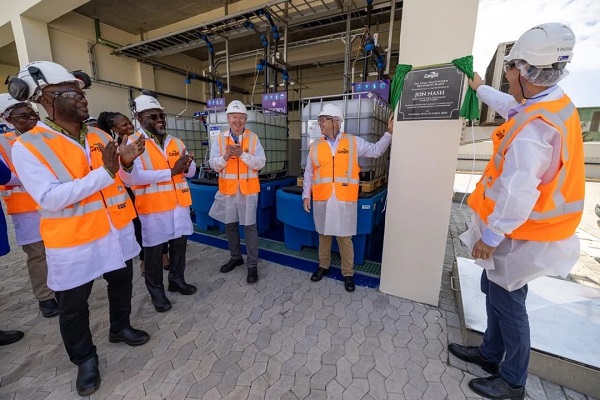
Cargill commissions wastewater treatment plant to boost sustainable manufacturing
Cargill Ghana has taken a major step toward environmental sustainability with the commissioning of a new wastewater treatment plant at its production facility.
The initiative forms part of Cargill’s broader commitment to responsible manufacturing and reducing its carbon footprint. With the new system, the company can now treat and reuse 100 per cent of its wastewater in-house, conserving water and minimising its environmental impact.
According to Cargill, all treated water meets Environmental Protection Authority (EPA) standards for reuse in landscaping and other non-potable purposes.
In addition to the wastewater plant, the company has also introduced a bag house filtration system designed to eliminate visible emissions from factory operations; a move that enhances air quality for both employees and nearby communities.
The Managing Director of Cargill Ghana, Max Esolat, said the new facility reflects the company’s long-term sustainability vision.
“Our purpose is to nourish the world in a safe, responsible, and sustainable way. Being a sustainable company, we also want to lead in responsible and sustainable manufacturing,” he said.
The Plant Manager, Richard Adjei, also highlighted the project's importance for environmental protection.
“Wastewater treatment is very important for every manufacturing company because you use clean water to run your process, but not all of it becomes part of your product,” he explained. “The plant ensures that the water leaving the process is clean and does not have any adverse impact on the environment.”
Cargill says these innovations reinforce its commitment to sustainability and responsible production practices in Ghana’s manufacturing sector.